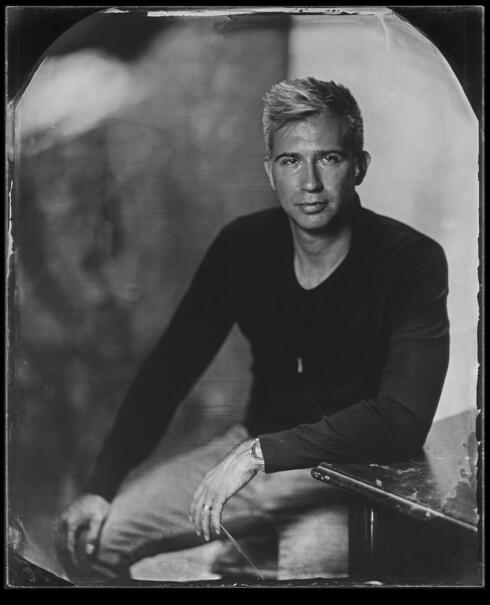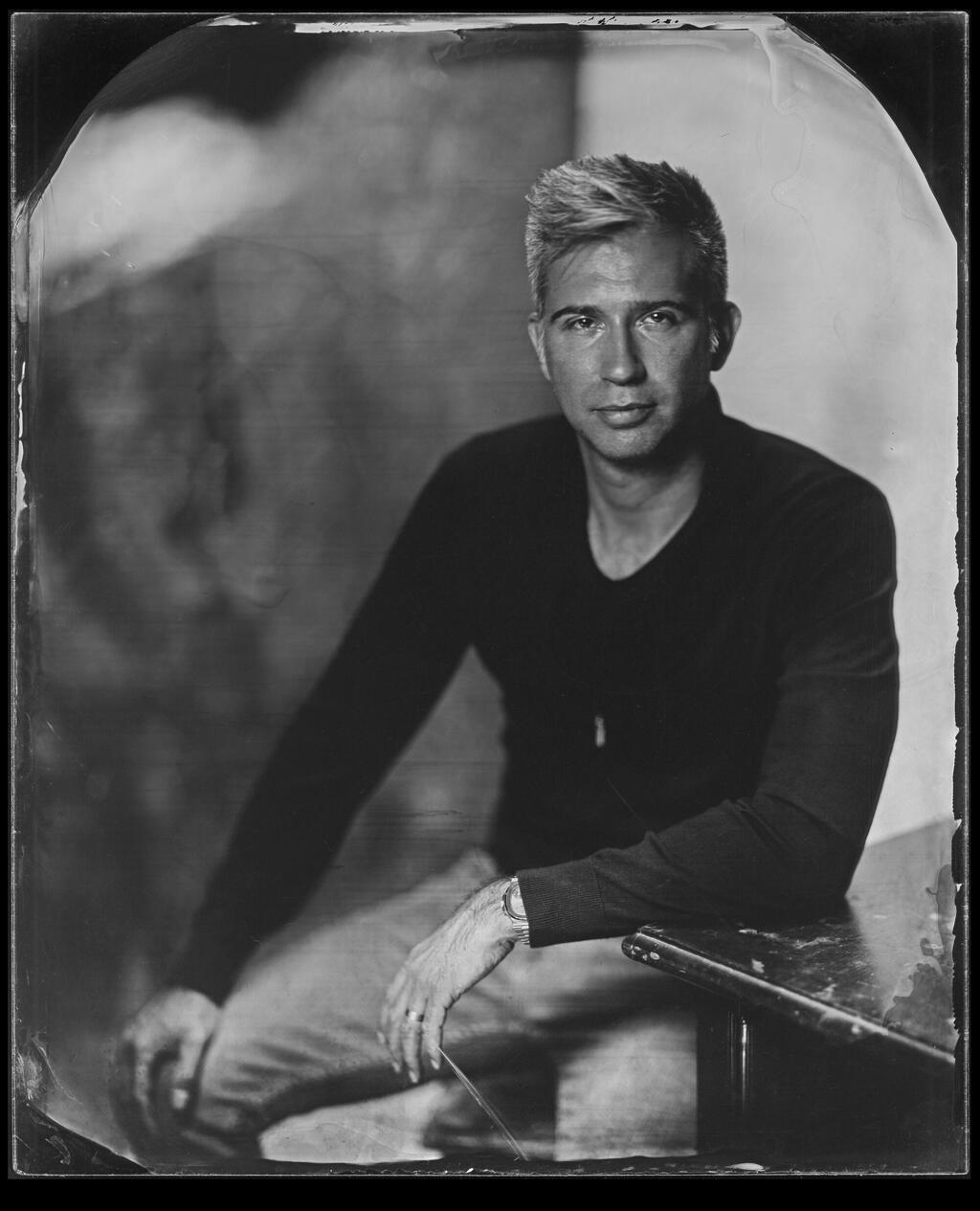
Long Exposure
"I take losses hard. Competition is a matter of life and death for me"
Yevgeny Dibrov explains why the urge to compete stems from his Jewishness and what he thinks, as a right-winger, about his friend Assaf Rappaport's protest
Yevgeny Dibrov (35) co-founder & CEO of the cyber company Armis Security, which was sold for $1.1 billion
"We immigrated from Ukraine to the Sha’arayim neighborhood in Rehovot when I was 4 years old. My parents divorced when I was a year old, and since then my father has tried to contact me several times, but my mother thought that no father at all was better than having a little bit of a father for me, and in retrospect maybe she was right. So my parental unit was mother- grandfather-grandmother...I don't regret growing up without a father, because I didn't know anything else, and as a child I didn't lack anything. When I saw that other children had a father, it made me somewhat uncomfortable, but overall people accepted it."
Was your grandfather a father figure?
"He spent a lot of time with me, and didn't agree with my friends calling him 'Yevgeny's grandfather.' He always corrected them: 'Not grandfather, but friend.' They liked it and laughed about it.
"When I played table tennis at Maccabi Rehovot, he became a table tennis referee. And when I was in chess, he was a chess referee. Later, when I played basketball, he would stress me out when he came to watch games, so he would come and hide. He also taught me soccer. My connection to any kind of sport was all thanks to him. I was my grandfather's ultimate victory, in the sense of: 'Look what we managed to do.'"
1 View gallery


Yevgeny Dibrov (The photo was taken using the wet plate collodion technique, an early photographic process invented in the 19th century.)
(Photo: Edward Kaprov)
You have been involved in many types of sports. What did you choose in the end?
"What motivated me was where I could be the best. I played basketball until the age of 13, and when I saw that I stopped growing a little after reaching the height of 1.80m (5”9 ft), I told myself that if I didn't have the potential to be an NBA player, I didn't want to continue. So I focused on athletics, and I was good at running 100 meters. In the shot put, I reached second place in the country. I always felt that if I couldn't be in the top 10, there was no point. This is the result of being educated at home. For my mother, a gold medal was important, because in Ukraine, in order to be accepted somewhere as a Jew, it was not enough to be better than the Ukrainian by 10%, you needed to be twice as good as them.
"Also in academics, I always felt that I could be number one. During the holidays, if I wasn't at a sports camp, I could sit all day in the library: I read history, the history of the Land of Israel, I read the Bible over and over again and I reached the district finals in the global Bible quiz competition. When I started playing chess, I read day and night about types of openings. I got into it all the way. This also came from my mother. No matter what our financial situation was, it was important to her that my textbooks were always new. The gifts I received over the years were always books, even when I wanted a Pog's carrying case."
What is the downside of needing to be the best?
"That I took every loss hard, whether it was on the basketball team, in an individual athletics competition or taking a school test. Even today when there is a competition, I see it as a matter of life and death. The good part is that I always do whatever it takes to succeed. In 2019 I flew half a million miles on United alone, because I said to myself: if a product needs to be promoted in a new area, I, as CEO, am ready to fly anywhere at any time, and since other CEOs are not ready to do that - this gives me a competitive advantage over them.
"Sales fill me with energy and adrenaline. I get on a lot of Zoom calls with customers, even when I don't have to. The relationship with a customer can make the difference, and in my eyes the CEO should be the best salesperson in the company. In terms of work and dedication you can't rest. My feeling is that no matter how hard I work - if I rest for a moment, someone will overtake me. That's the competitiveness."
Is this also related to your experience as an immigrant from the Soviet Union who was absorbed in a Yemenite neighborhood?
"Sha’arayim is actually the place where I learned how to integrate into society, and that you can always find things that unite different people. Most of the time I didn't feel different. I even had my bar mitzvah in a Yemenite synagogue. I have no singing abilities, but still no one laughed at me. This is an excellent example of a melting pot as far as I am concerned.
"To this day, I still think the best entrepreneur is not the best technologist, but the one who has the ability to be pragmatic and adapt to the environment. This is what allows you to know how to sell in Japan, Germany, Israel or Texas."
Is there a difference between your business relationship with Nadir Izrael in Aramis and a normal relationship?
"There is more similarity than difference. Nadir and I are like a married couple. As in any relationship, the most important thing is to be able to trust each other very much, and for that we must be honest, not hide things, and above all come to the partnership without ego. The key between us has always been to act quickly, even with critical things, no more than ten minutes will pass until a decision is made, in order to move quickly. When we argue, when one of us believes in his position deep in his heart - we go with that, and the other will give in. The price of one of us feeling very bad is too high for us."
Politically you identify with the right. What do you think about the protests against the legal reform, especially those of the high-tech community?
"I am a right-wing person, but I see both sides, and the polarization created in Israeli society hurts me. I see how much this matter hurts people. I believe in dialogue before taking extreme steps. There should be dialogue based on the president's outline, to stop for a moment and sit down and talk. Nothing will happen if the legislation is postponed for a week or two. In the end, both sides will have to give in and that is worth it in order to unite the people, which is what the majority of the people want. In such dramatic revolutions, marching ahead quickly is a problem."
Assaf Rapaport, who was your boss in Adallom, withdrew Wiz's money from Israel in protest of the reform. The right attacked him on the grounds that it was unpatriotic. What do you think?
"I don't think he's doing it out of an unpatriotic place, but rather out of pain. He feels that only through such moves will he make something change. Because I know Assaf so well and all the high-tech people protesting against the reform, and know that they contributed ever so much to the country, I don't think you can call any of them unpatriotic. I hope that the politicians on both sides know how to sit down and talk to each other so that no extreme acts take place here. Passing the reform in its present format will only cause a rift in the people, and I don't think it's a significant issue in the country's priorities, there are more strategic challenges."
Do you have political aspirations?
"One day I would like to cross the lines into politics, but I am still deeply immersed in my life's work, which is Aramis - I still need to take the company to an IPO, continue to build a blue-and-white empire here, and increase it from $100 million in revenue to half a billion and a billion. Politics is attractive to me, but I have critical tasks to achieve for the next 10 years. Fortunately, I don't have to make up my mind today."













